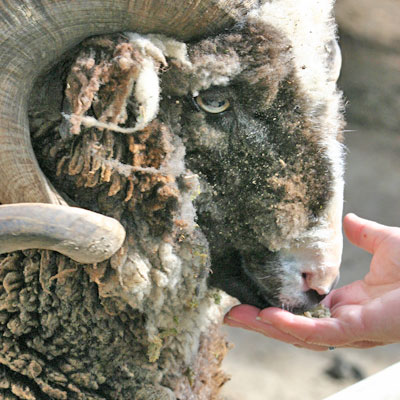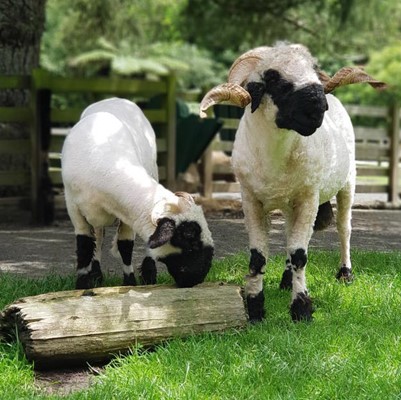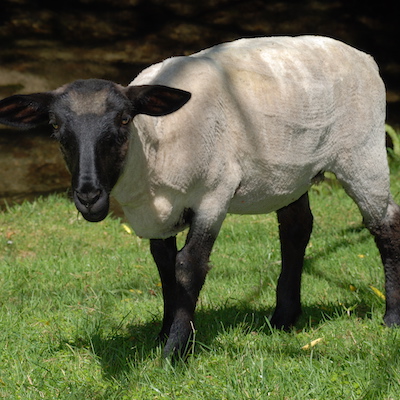SHEEP
Sheep were first introduced to New Zealand in the 1770's and have played a big part in our economic history.
Sheep farming was New Zealand's most important agricultural industry for over a hundred years, until the dairy industry excelled in the 1980's. Sheep are still a key symbol for New Zealand and around 30 million are farmed around the country today.

Wild on Arapaoa Island (formerly Arapawa), likely descendants of Merino’s farmed there from 1867. Mostly left alone on the island, they have evolved to be alert and wary. Arapaoa Island's steep terrain has made them agile and athletic.
Their coats are brown in colour, with some white. With no interbreeding, they have remained a pure bred line of sheep. They can have lambs at any time of the year so you'll often be able to meet Arapawa lambs at our park.

Valais Blacknose Sheep were first imported into New Zealand as frozen embryos in 2017, and there are only a few small flocks in the country. They originate from the Valais area in Switzerland.
Known as the 'cutest sheep in the world' for their very friendly natures and fluffy ringlet like wool that requires shearing twice a year. Both sexes have horns.

Suffolk Sheep were the result of crossing Southdown rams with Norfolk Horned ewes. In 1913 one ram and six ewes were imported to Canterbury to meet requirements in the meat trade - high flesh to fat ratio.
Suffolks are now the most dominant sheep meat breed in the world. Their wool is bulky and has excellent thermal qualities for use in bedding and garments.
Stay in touch
Sign up to receive new offers & promotions
Contact Us